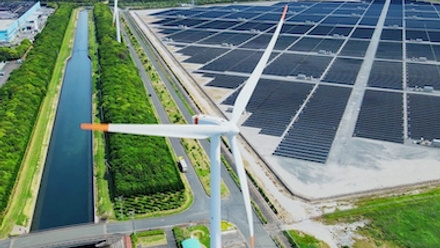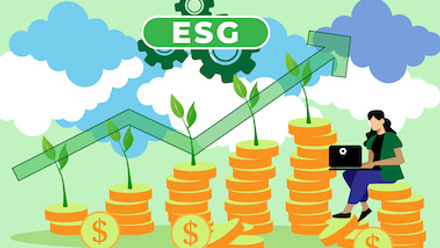The growing influence of ESG in executive compensation

Our research suggests that the number of companies linking ESG metrics to executive compensation is on the rise. From 2008 to 2020, the average percentage of companies linking ESG metrics to CEO pay increased from 3% to 34%. The data suggests that French companies are leading the charge in Europe, with 74% of companies in the country including ESG metrics in CEO compensation plans. Countries such as Norway, Italy, and Ireland, meanwhile lag behind France, the UK, and the Netherlands.
By sector, our findings suggest that the utilities sector has had the highest growth in companies incorporating ESG-related metrics in executive compensation. In 2008, none of the utilities companies in our sample had linked ESG metrics to executive pay. In 2020, this number was 64%.
Sectors such as healthcare and information technologies meanwhile lag: approximately 22% and 25% of companies in these sectors respectively had ESG related KPIs in their annual and or long-term incentive plans. Overall though, the percentage of companies incorporating ESG metrics into their compensation plans is still increasing rapidly. We expect that in 2021, the average number of companies linking ESG to compensation will grow to 37% across Europe.
Social and environmental metrics popular among remuneration committees
In the analyses, we find that companies’ most frequent choice of ESG metrics are social metrics such as diversity targets, human capital metrics, such as employee engagement, and succession planning metrics. In 2020, 30% of companies had social metrics in their remuneration policies, which is expected to climb up to 24% in 2021.
Looking at diversity metrics, the most common choices by remuneration committees were gender diversity, racial/ethnic diversity, and attracting and retaining diverse talent. This trend is unsurprising given the resurgence of social movements such as Black Lives Matter in 2020. Companies headquartered in France take the lead in the highest percentage of companies incorporating social metrics. Sector wise, the data also suggests that communication services companies also incorporate the most social-related metrics in executive compensation. In 2020, 46% of companies in the sector had the most social-related metrics in their CEO pay plans.
Environmental metrics are also quite a popular choice for remuneration committees: 24% of companies included environmental metrics in their remuneration policies. The environmental metrics most often cited for use in incentive compensation plans were carbon emissions and greenhouse gas limits, along with waste reduction measures and energy efficiency. By sector, unsurprisingly, energy companies lead in the implementation of environmental metrics, with 53% of companies in the sector linking executive compensation to environmental metrics.
The energy sector is seen as a key contributor to climate change accounting for more than 67% of global greenhouse gas emissions. The sector is also directly impacted by climate change and these circumstances add context to this sector’s recent activity around climate.
The healthcare sector lags behind others with only 6% of companies incorporating environmental metrics in their executive pay plans.
Short-term focus on ESG metrics
While there is a noticeable trend on emphasis on ESG-related metrics in executive compensation, we find that they are more prevalent in annual bonuses rather than in long-term incentives, lessening their impacts. In the future, it is to be hoped that ESG metrics will be included in long-term plans more than short-term incentives. Concentrated ESG efforts should not be treated as quick fixes or short-term box-ticking, but rather as integral to long-term sustainable value creation for an organisation.
The findings suggest that in the near future, more companies will include ESG metrics into their long-term incentives. The data indicates that 36% of companies in 2021 will have ESG-related metrics in their long-term incentive plans, up from 26% in 2020.
Accelerating ESG integration: The way forward
Successfully integrating quantifiable ESG performance into executive incentive plans is touted as a way forward for the Board to increase accountability and progress around ESG, as well as signal its importance to shareholders. Although it appears that this practice is still evolving, market developments indicate that it may not be long before this becomes an even more common practice. Perhaps a key way to accelerate the process is through legislation. The European Union for example is one body that is leading the way in discussing this for potential implementation.
The author is Edna Twumwaa Frimpong, head of international research at Diligent.
This article is provided by Diligent.
The Aligning Pay, Planet and People study utilised compensation data from 2008 to 2021, and included 1,914 companies from across Europe. The data for the analysis was sourced from Diligent Corporation’s compensation database.
In partnership with Diligent
Our modern governance platform empowers leaders & teams to digitally transform & create positive change.







